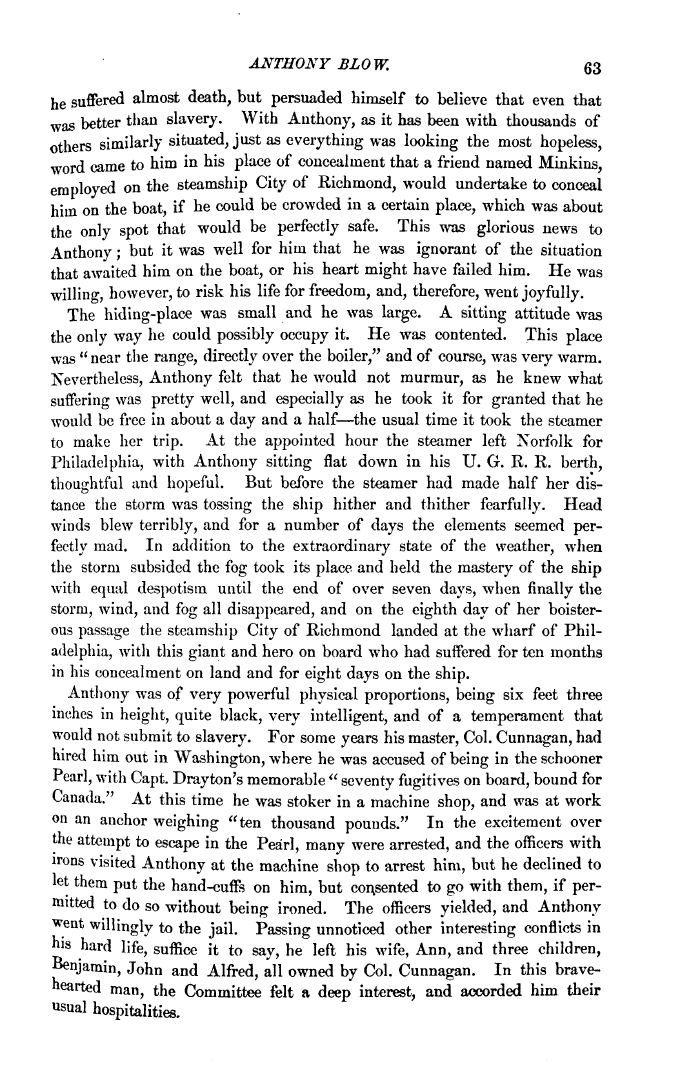 |
||||
 |
||||
| ANTHONY BLOW. 63 he suffered almost death, but persuaded himself to believe that even that was better than slavery. With Anthony, as it has been with thousands of others similarly situated, just as everything was looking the most hopeless, word came to him in his place of concealment that a friend named Minkins, employed on the steamship City of Richmond, would undertake to conceal him on the boat, if he could be crowded in a certain place, which was about the only spot that would be perfectly safe. This was glorious news to Anthony; but it was well for him that he was ignorant of the situation that awaited him on the boat, or his heart might have failed him. He was willing, however, to risk his life for freedom, and, therefore, went joyfully. The hiding-place was small and he was large. A sitting attitude was the only way he could possibly occupy it. He was contented. This place was " near the range, directly over the boiler," and of course, was very warm. Xesrerthelcss, Anthony felt that he would not murmur, as he knew what suffering was pretty well, and especially as he took it for granted that he would be free in about a day and a half—the usual time it took the steamer to make her trip. At the appointed hour the steamer left Norfolk for Philadelphia, with Anthony sitting flat down in his U. G. R. R. berth, thoughtful and hopeful. But before the steamer had made half her distance the storm was tossing the ship hither and thither fearfully. Head winds blew terribly, and for a number of days the elements seemed perfectly mad. In addition to the extraordinary state of the weather, when the storm subsided the fog took its place and held the mastery of the ship with equal despotism until the end of over seven days, when finally the storm, wind, and fog all disappeared, and on the eighth day of her boisterous passage the steamship City of Richmond landed at the wharf of Philadelphia, with this giant and hero on board who had suffered for ten months in his concealment on land and for eight days on the ship. Anthony was of very powerful physical proportions, being six feet three inches in height, quite black, very intelligent, and of a temperament that would not submit to slavery. For some years his master, Col. Cunnagan, had hired him out in Washington, where he was accused of being in the schooner Pearl, with Capt. Drayton's memorable " seventy fugitives on board, bound for Canada." At this time he was stoker in a machine shop, and was at work on an anchor weighing "ten thousand pounds." In the excitement over the attempt to escape in the Pearl, many were arrested, and the officers with irons visited Anthony at the machine shop to arrest him, but he declined to let them put the hand-cuffs on him, but consented to go with them, if permitted to do so without being ironed. The officers yielded, and Anthony went willingly to the jail. Passing unnoticed other interesting conflicts in his hard life, suffice it to say, he left his wife, Ann, and three children, •Benjamin, John and Alfred, all owned by Col. Cunnagan. In this brave-hearted man, the Committee felt a deep interest, and accorded him their usual hospitalities. |